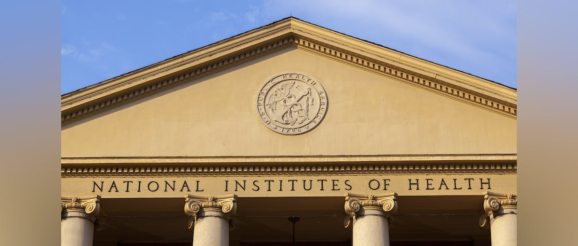NIH Data Management and Sharing Policy Going Into Effect | Healthcare Innovation

A National Institutes for Health (NIH) Data Management and Sharing (DMS) Policy that goes into effect on Jan. 25, 2023, expects researchers to maximize the appropriate sharing of scientific data, and consider legal, ethical, or technical issues that may limit the extent of data sharing and preservation.
Individuals receiving NIH funding to generate scientific data must comply with the DMS Policy. This compliance level differs from the 2003 DMS Policy: Previously, only awards totaling $500,000 per year or more had to comply with the policy.
In a recent blog post, Susan Gregurick, Ph.D., associate director for data science and director of the Office of Data Science Strategy, noted that “data sharing accelerates biomedical research discovery and innovation, enhances research rigor and reproducibility, provides accessibility to high-value datasets, and promotes data reuse for future research studies. Ultimately, sharing data speeds up the process of turning research results into knowledge, products, and procedures to improve human health.
Although all researchers are encouraged to share their scientific data, Gregurick’s blog notes that there are a few reasons for limiting data sharing:
A research guide produced by the University of Michigan Library system states that NIH strongly encourages the use of established repositories to the extent possible for preserving and sharing scientific data. “Once a grant has been awarded, the DMS Plan becomes part of the award’s terms and conditions. NIH expects researchers and institutions to implement data management and sharing practices as described in their approved Plan. Compliance with the DMS Plan, including any updates, may be reviewed during regular reporting intervals,” the guide notes.
The guide states that a DMS Plan should include the following elements:
The policy allows researchers to budget for data management and sharing activities, including:
Gregurick’s blog post concludes by stating that data sharing is not new and has been a part of the fabric of NIH-funded research projects for decades. “However, if noncompliance becomes an issue for any NIH-funded research projects, the NIH Institutes, Centers, and Offices may add special terms and conditions or terminate award funding.”
One resource that is available to help researchers prepare DMS plans is the DMPTool, a free, open-source, online application that helps researchers create data management plans (DMPs). The DMPTool provides a click-through wizard for creating a DMP that complies with funder requirements. It also has direct links to funder websites, help text for answering questions, and data management best practices resources.
On its website, the organization explains that “the original DMPTool was a grassroots effort, beginning in 2011 with eight institutions partnering to provide in-kind contributions of personnel and development. The effort was in direct response to demands from funding agencies, such as the National Science Foundation and the National Institutes of Health, that researchers plan for managing their research data. As a result, the contributing institutions consolidated expertise and reduced costs in addressing data management needs by joining forces.
The original contributing institutions were: University of California Curation Center (UC3) at the California Digital Library, DataONE, Digital Curation Centre (DCC-UK), Smithsonian Institution University of California, Los Angeles Library, University of California, San Diego Libraries, University of Illinois, Urbana-Champaign Library and the University of Virginia Library. Given the success of the first version of the DMPTool, the founding partners obtained funding from the Alfred P. Sloan Foundation to create a second version of the tool, released in 2014.
